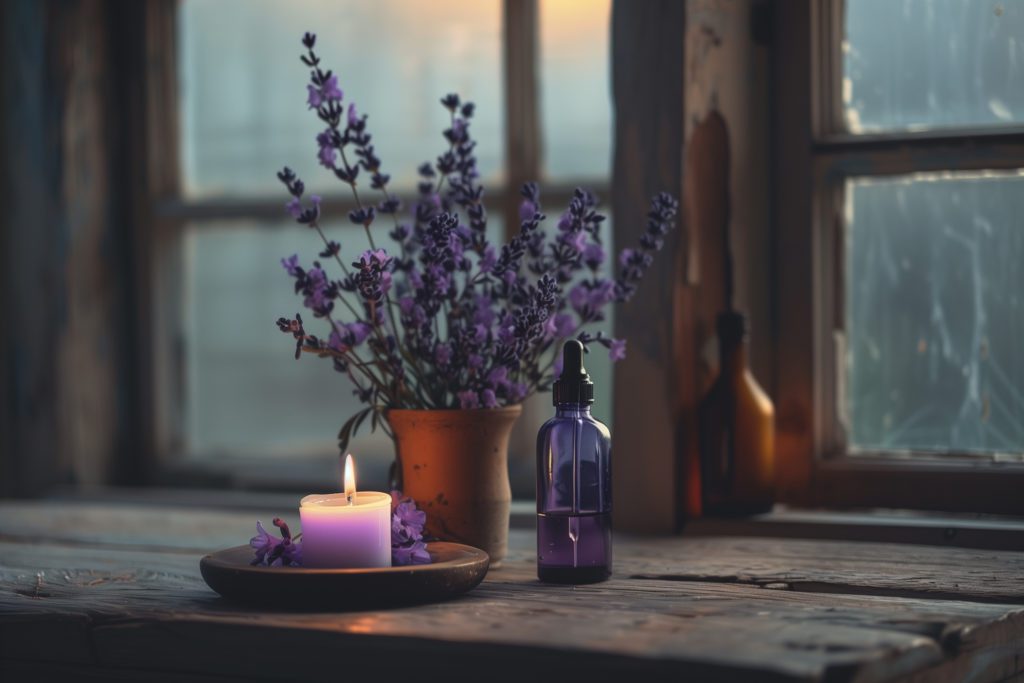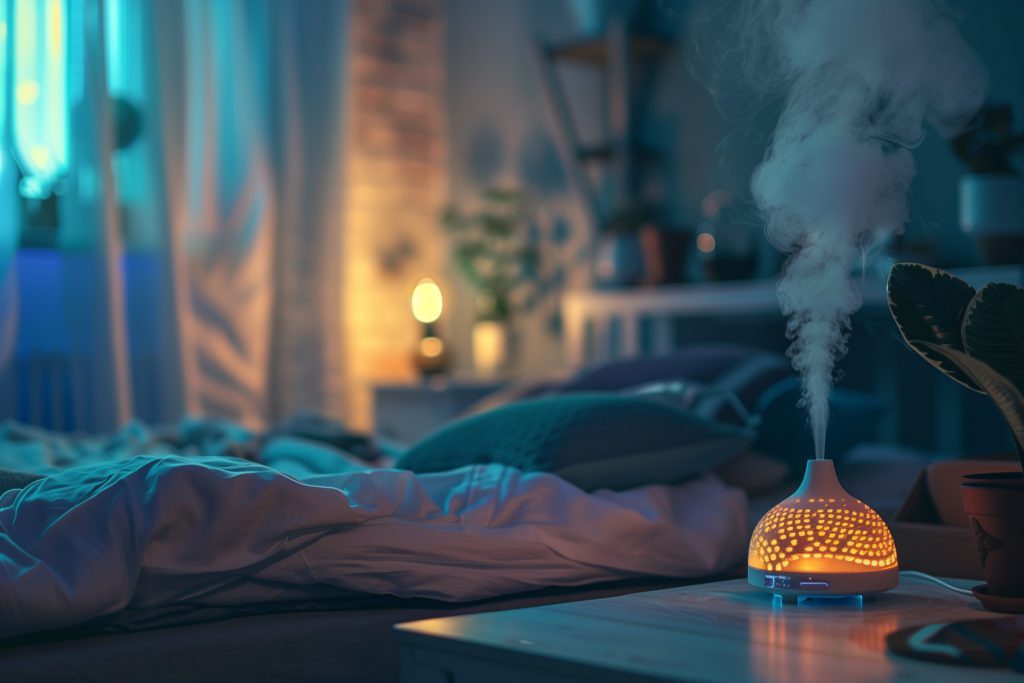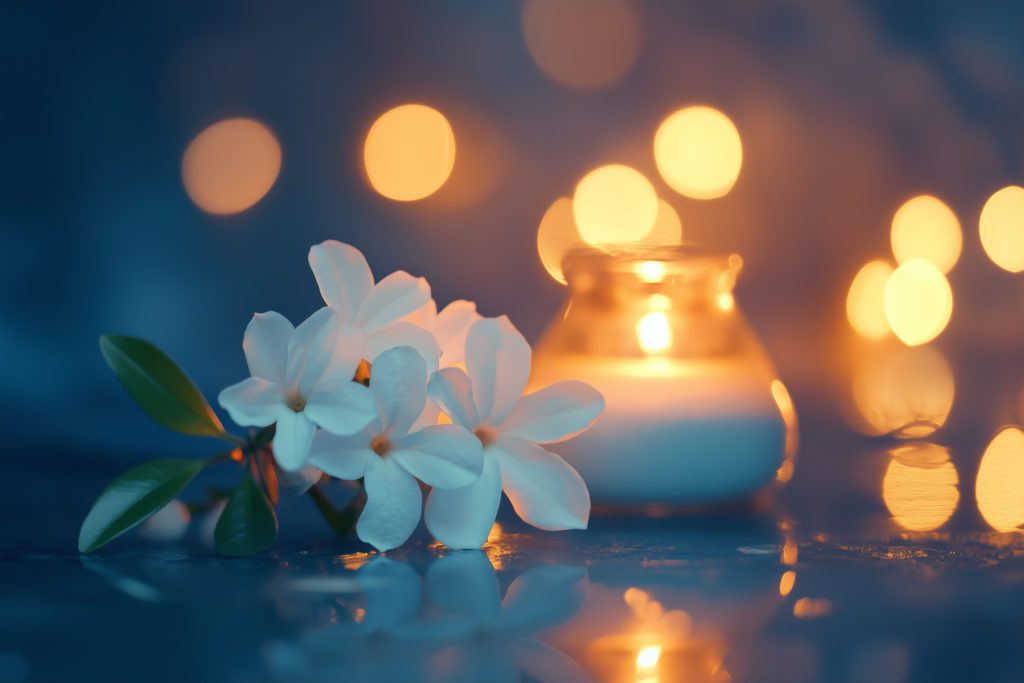
Lavender and Sleep: Unraveling the Mysteries of this Magical Herb
Lavender is a scent commonly associated with sleep because it can help you fall and stay asleep. Explore tips for using lavender in your nighttime routine.

If there’s one scent that is most heavily associated with sleep, it’s lavender. Many sleep and relaxation-promoting candles, oils, and melts feature lavender as their primary ingredient. Even lotions and body washes will have lavender in the starring role when the goal is to improve sleep.
There’s a reason for the prevalence of lavender in sleep-promoting products—this purple flower has been shown to lower stress levels and improve sleep quality, letting you drift off to sleep easily and sleep more soundly during the night. When you’re looking to enhance your nighttime routine, it may be worthwhile to add the stimulation of your sense of smell, and lavender is a great scent to start with.
The Sleep-Promoting Effects of Lavender
Lavender can improve your nights by helping you fall asleep and sleep more soundly.
The greatest benefit of lavender for sleep is related to its calming influence on your nervous system. Lavender essential oil contains compounds such as linalyl acetate, linalool, and camphor, which all act as anxiety relievers by interacting with the brain and nervous system to reduce restlessness, aggression, and agitation. This means that smelling lavender directly suppresses your nervous system, lowering your stress levels, letting your mind relax, and allowing you to fall asleep more easily.
The compounds in lavender also act as a sedative, which can promote feelings of sleepiness, again making it easier to fall asleep.
It’s not just theory regarding the sleep benefits of lavender, either; scientific studies have been able to show its capabilities. One study showed that exposure to lavender aroma made students less sleepy when waking in the morning, suggesting an improvement in their quality of sleep. Another showed that midlife women with insomnia saw improvements in their sleep quality and a short-term effect on their HRV that equated to an increase in parasympathetic modulation, which is crucial for effectively managing stress.
Lavender has also shown its impact on those with specific health conditions, with a study showing a significant improvement in sleep quality in those with heart disease who tried aromatherapy with lavender oil. Lavender has also been shown to help reduce both chronic and acute pain—if pain is keeping you up, the pain-relieving properties of lavender may make you more comfortable at night, which can then help you fall and stay asleep.
The results of these studies clearly show that lavender aromatherapy has the potential to improve sleep quality and can even offer a short-term boost to your heart health, aiding its stress-reducing and sleep-promoting effects.
Tips for Using Lavender to Sleep Better
With evidence of lavender’s sleep-promoting properties clear, here are some tips for integrating lavender aromatherapy into your nighttime routine if you’re looking to fall asleep more easily and sleep more soundly through the night.
Apply Lavender Oil Directly to Your Skin
One method of using lavender aromatherapy is by applying it directly to your skin, and there are many methods for this technique.
One option is to use a lotion that is lavender-scented. You could also take a shower or warm bath before bed and use a lavender-scented soap, body wash, or bath salt. In addition to exposing you to the scent of lavender, calming your parasympathetic nervous system, a warm bath or shower before bed can help you fall asleep more easily by triggering the rapid decline in body temperature that prompts sleep.
Yet another skin application available for lavender is through lavender oil, which can be absorbed through the skin rapidly in addition to being smelled. Research has shown that lavender’s compounds, linalool and linalyl acetate, can be detected in the blood within 5 minutes of lavender oil’s application, and the maximum concentration is reached in just 20 minutes. Knowing this, using lavender oil can offer a quick boost to your sleep habits.
Mist It on Your Pillow
Yet another option for adding the scent of lavender to your night is by using it as a pillow mist. This allows you to fall asleep with the scent of lavender enveloping you.
Try A Diffuser
A diffuser can also be used to fill your bedroom with the scent of lavender. You can get it started while you prepare for bed so that, by the time you crawl between your sheets, the smell of your room is helping your eyelids droop with sleepiness.
As a bonus, the auto-off feature that most diffusers have makes them safe to use as you fall asleep, unlike a candle, which has an open flame.
Use It Every Night
The method by which you use lavender to help you fall asleep is only as important as the routine that you establish—when you use lavender each night, no matter which form you prefer, you create a habit that can also help you to fall asleep more easily.
Knowing this, it’s helpful to integrate the use of lavender into your already-established nighttime routine. For example, use lavender soap when you shower or put on lavender-scented lotion when you’re done. You could also turn on your diffuser before you brush your teeth each night or spray your pillow right before you get into bed.
There are many ways that you can use lavender in your nighttime routine, so choose one that you will have the easiest time making a habit out of.
Enjoy a Lavender-Scented Snooze
In addition to helping you fall asleep more easily and improving sleep quality, lavender may even serve as a natural alternative to medication. For those with insomnia who otherwise take medication, research has shown that lavender may serve as a temporary relief from continued medication and reduce the side effects of the drugs.
Ultimately, lavender helps to calm your nervous system and improve sleep quality, leading to more refreshed mornings. To experience the power of this herb for yourself, try out a lavender-scented product and see the sleepiness boost that the purple flower offers when it joins your nighttime routine.

Written by
Jessica G
Medical writer freelancer who has written hundreds of articles on varying topics. Masters of Engineering degree in Biomedical Engineering.
Download Pillow
Get help
Press & News
Legal
Connect
X (Twitter)
Company
Copyright © Neybox Digital Ltd.



